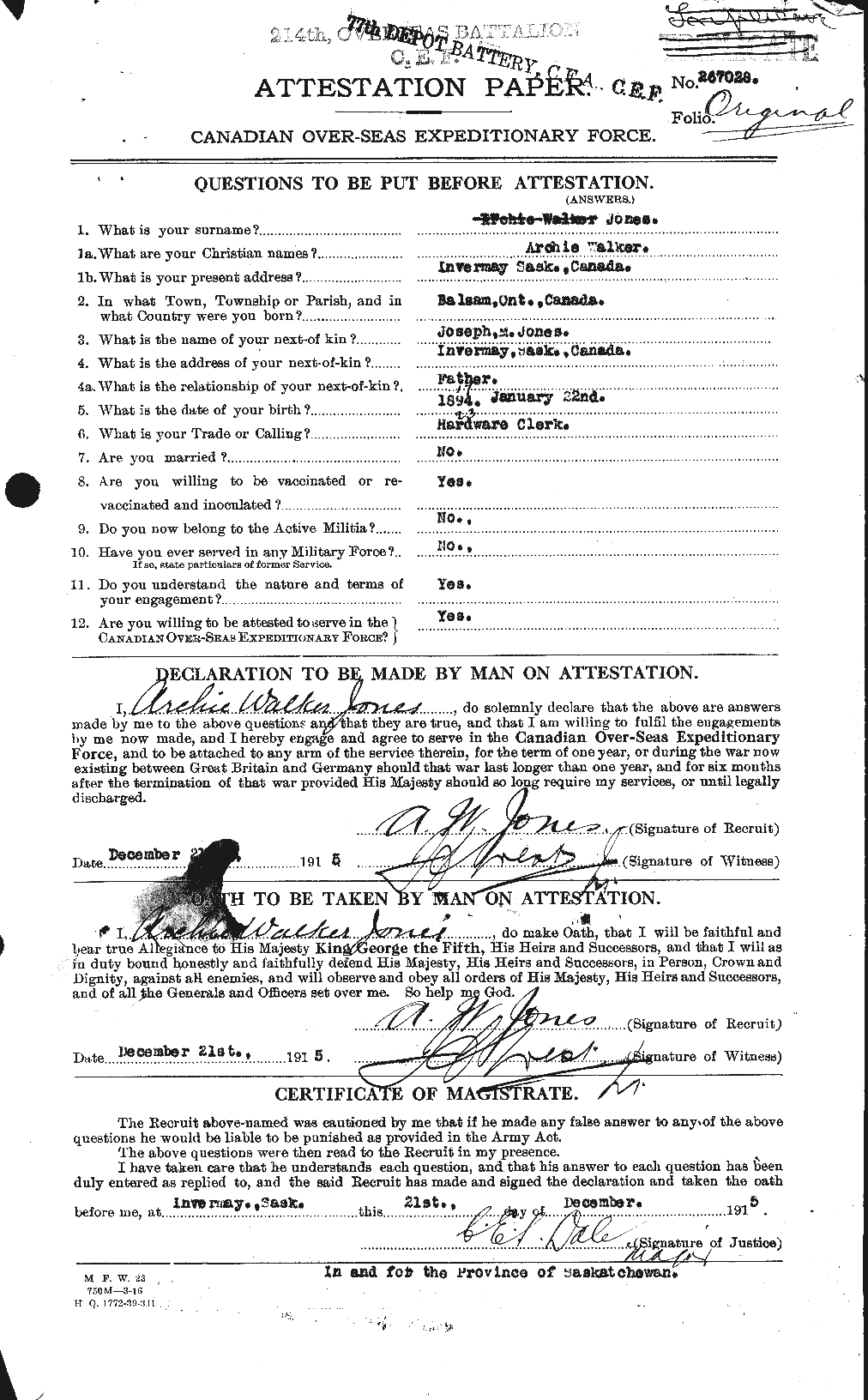
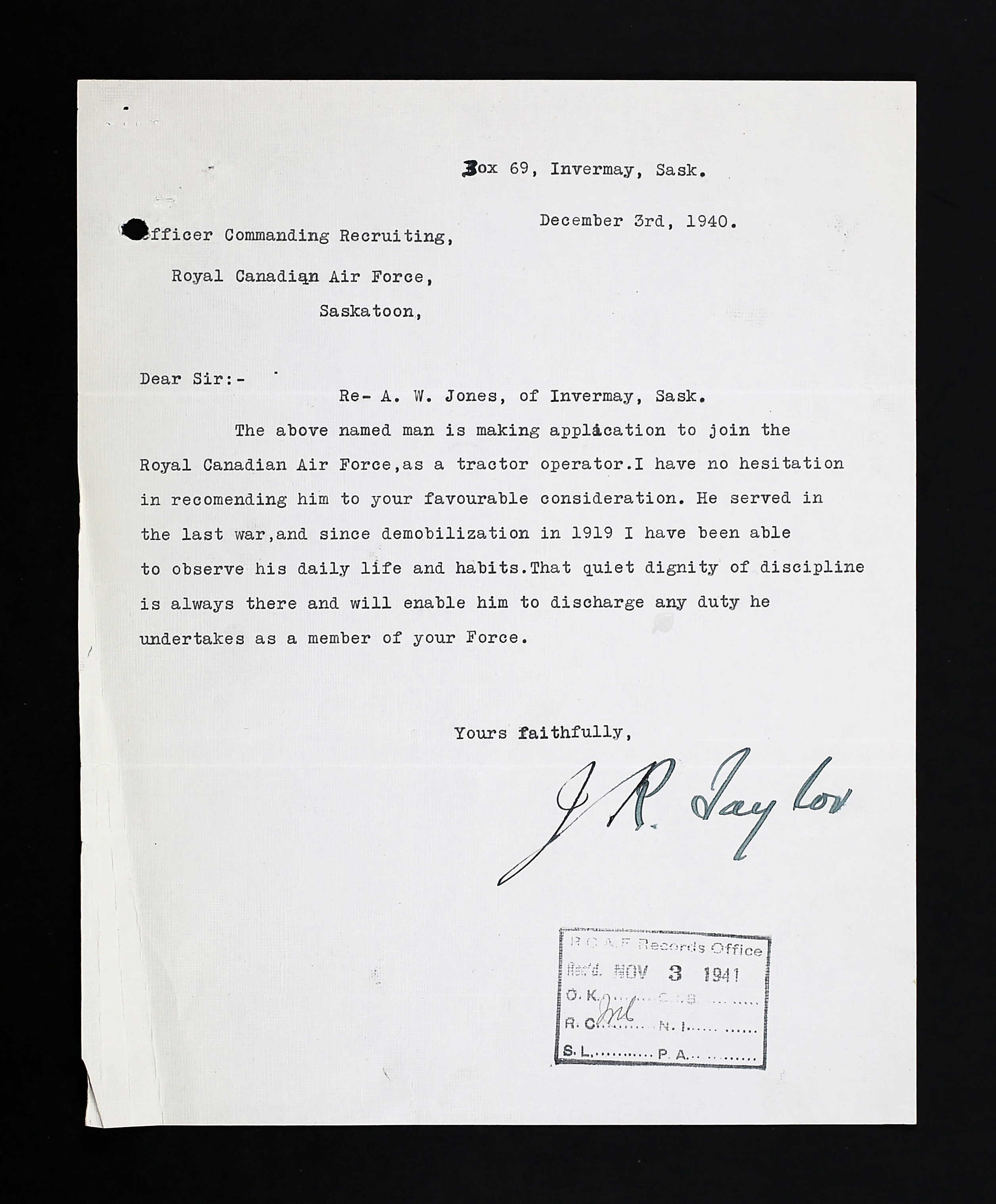
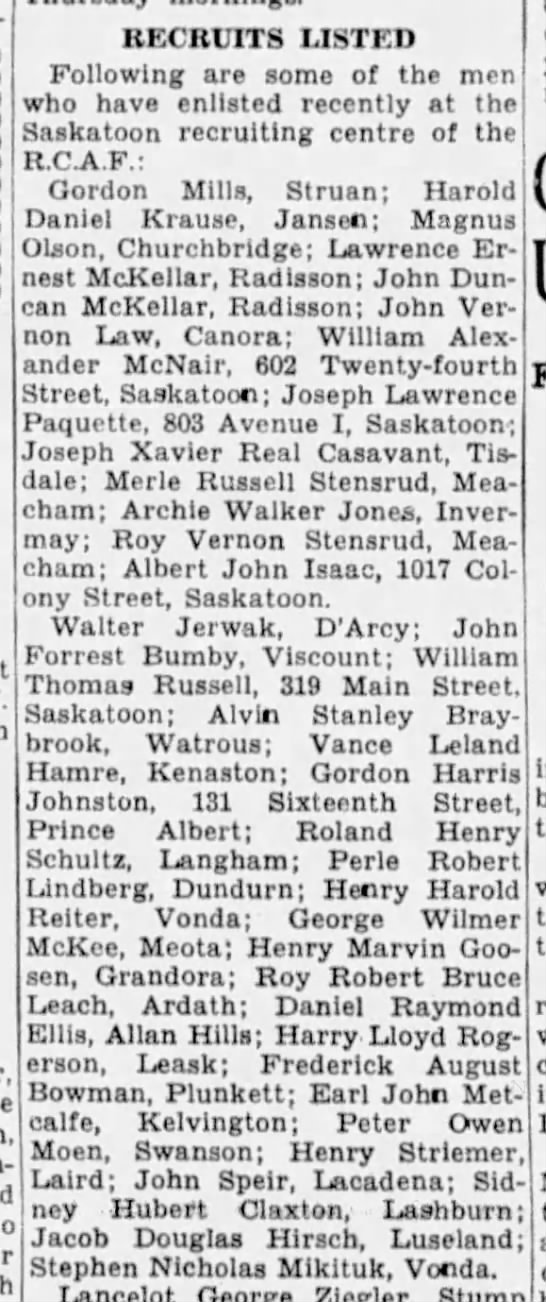
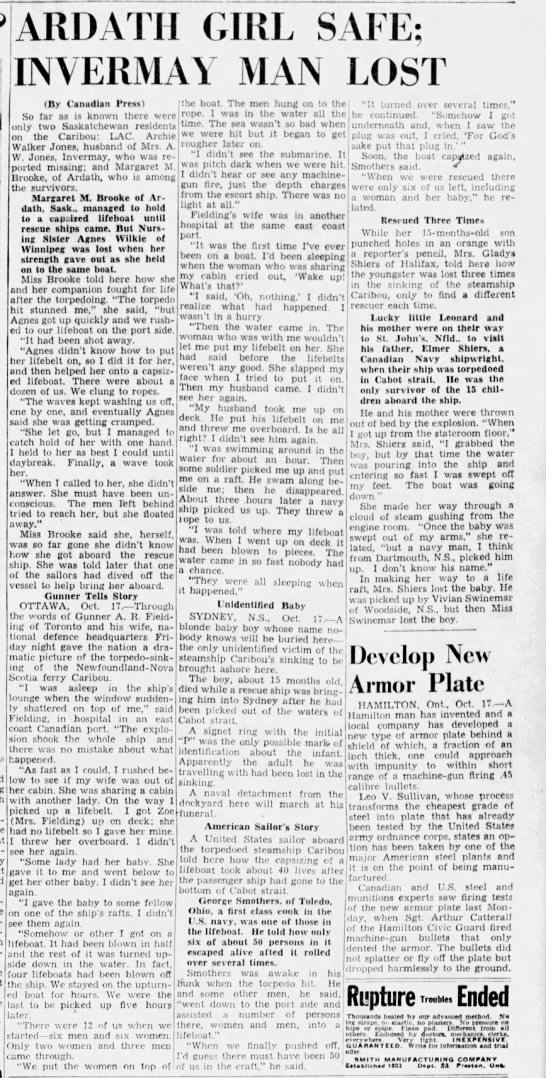
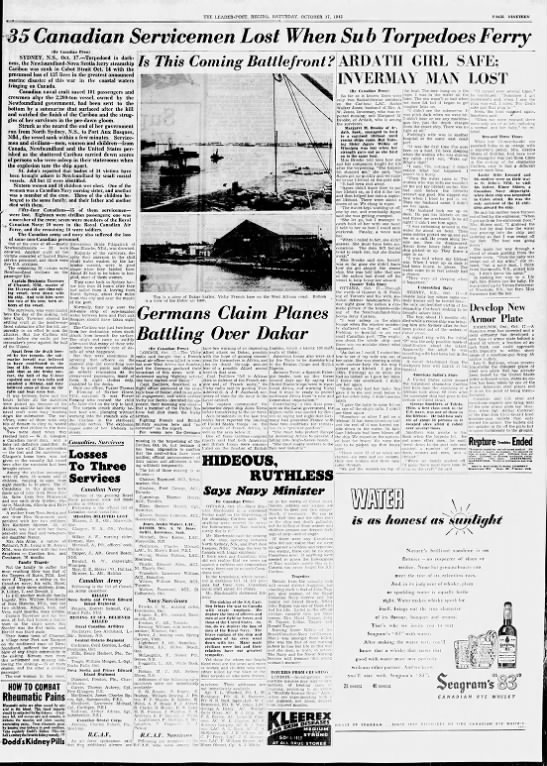
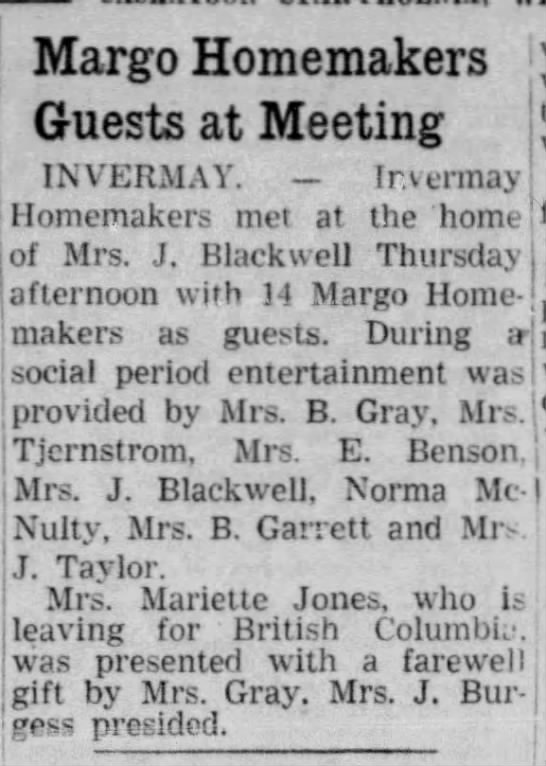

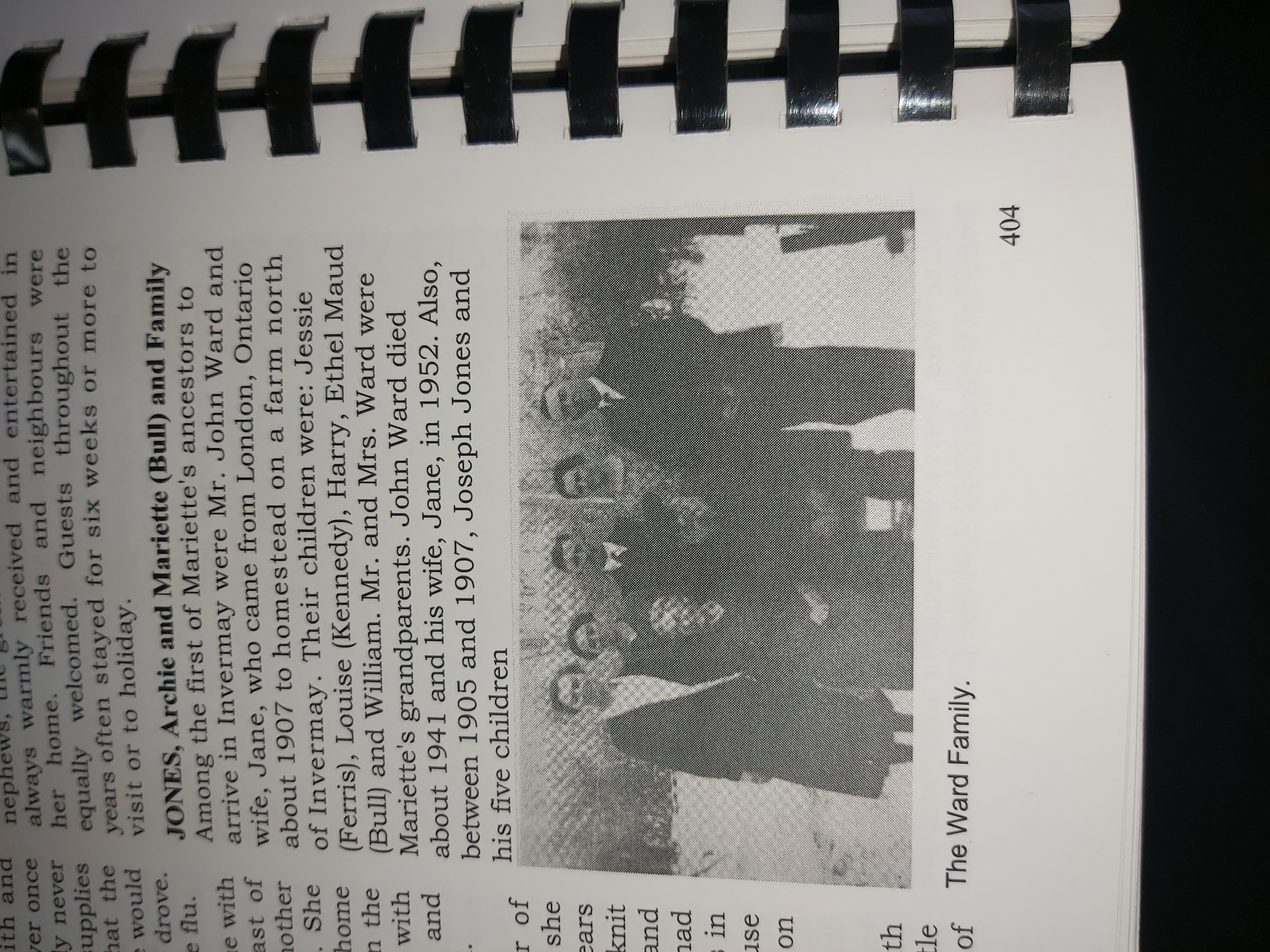
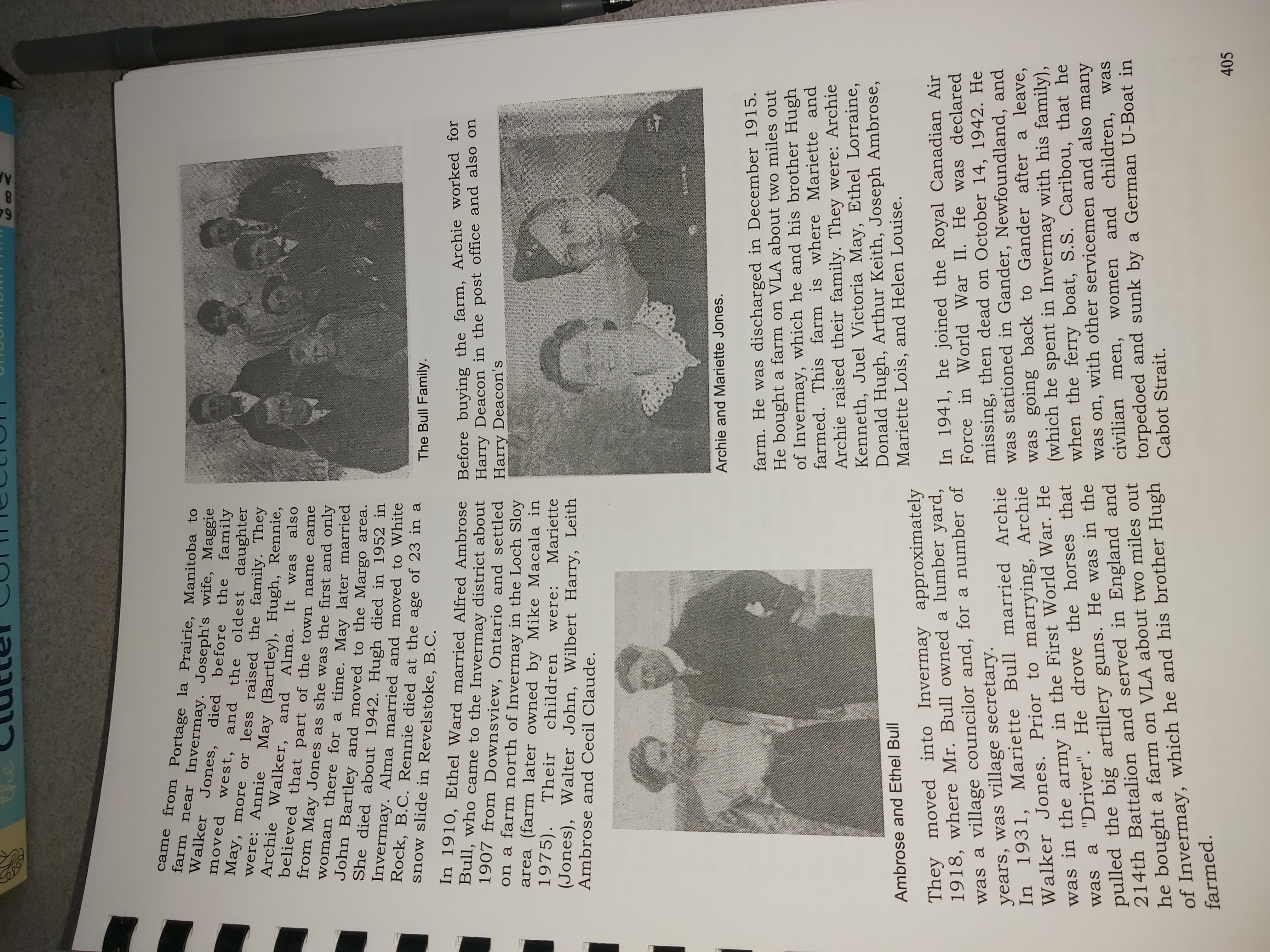
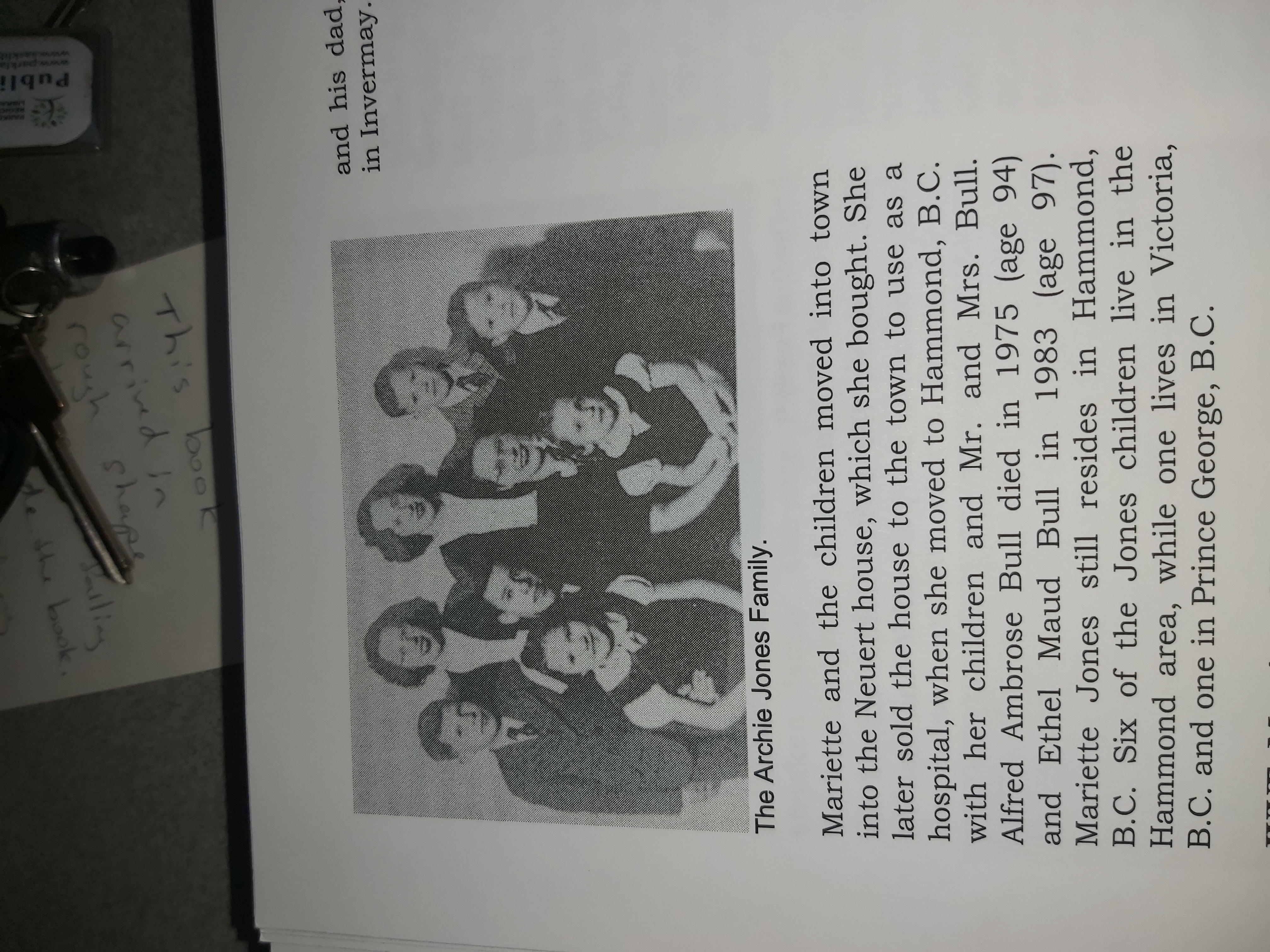
January 22, 1895 - October 14, 1942










Archie Walker Jones was born in Balsam, Ontario, the son of Joseph M. Jones (1857-1920) farmer, and Margaret (Maggie) (nee Walker) Jones (d.1902). When he was six years old, he and his family moved west, first to Portage la Prairie, Manitoba, then to Invermay, Saskatchewan in 1904. Archie had two brothers, George Renard (1889-1910 who died in the Rogers Pass Avalanche part of a railway crew) and Hugh (1889-1952), plus two sisters, Annie May (d. 1942) and Alma, who was a nurse overseas by 1943. The family was Methodist/United Church.
Archie had a Grade VIII education.
He was a veteran of the First World War (Regimental No. 267028). He stood 5’8” tall and weighed 145 pounds. He had brown/hazel eyes and black hair with a dark complexion. It was noted on his dental examination that he had 28 fillings. He served with the 214th Btn and 66th Bty of CFA, 14th Brigade, CFA in Canada and France as a driver between December 21, 1915 to July 26, 1919. On his WWI attestation paper dated 1915, his birth year was 1894. (His wife also wrote 1894 on the estates form in 1943.) He forfeited thirteen days’ pay in September 1916. He was in the hospital at St. Paul’s, Saskatoon with pneumonia March 21, 1917. “He was taken sick on March 19, 1917 with pneumonia; admitted to City Hospital March 21, 1917, with complete consolidation of lower lobe of right lung. He ran a temperature of 103 to 105 for eight days. He had crisis on eighth day of disease. Since then has been normal. Gradually improving but is still weak and anaemic. He is not fit for duty at present. Recommend that he be transferred to H Unit for one month’s convalescence.” On May 21, 1917: “The Board examined Cpl. A. W. Jones and report as follows: He has been ill with pneumonia contracted March 18, 1917. We find he has fully recovered and is physically fit. We recommend his transfer to an overseas Battalion Class A2.” In June 1917, he had a mild attack of diphtheria, remaining in hospital for 35 days. In September 1917, he took a harvest leave. In October 1917, he was AWL and forfeited two days’ pay, and again in December. He proceeded overseas from Halifax in February 1918 aboard the SS Lapland, arriving in Glasgow, Scotland, on February 24, 1918. He was taken on strength initially as a gunner. By May 1919, he was a driver at Havre and Witley. June 11, 1919, he was sent back to Canada. He earned $15/day.
After the war, Archie was a hardware clerk and postman for three years, then ran steamers and farmed for 22 years, with working at odd jobs for one year before farming.He liked to play hockey, football, and baseball.
He married Mariette Bull on September 16, 1931 and they resided in Invermay, Saskatchewan. They had seven children: Archie Kenneth (b. October 1931), Juel Victoria (b. May 1933), Ethel Lorraine (b. September 1934), Donald Hugh (b. November 1935), Arthur Keith (b. March 1937), Joseph Ambrose (January 1939-1986), and Mariette Lois, (b. February 1941).
He was farming in the Invermay district when he enlisted with the RCAF in December 1940 as a tractor operator. He stated he was in debt to the Soldiers’ Settlement Board, in which his farm was held. He had good knowledge of steam and gas tractors, plus some diesel work.
The RCAF accepted Archie for general duties at the end of October 1941, through No. 4 Recruiting Centre, Saskatoon, Saskatchewan. By this time, he stood 5’ 7 ¼” tall and weighed 150 pounds. His hair had grown “sparse and was brown with grey.” His teeth were considered “fairly healthy.” He was 46 years old. His blood pressure was high when he first applied and he was unfit at that time.
Archie was sent to No. 1 Manning Depot, Toronto October 28, 1941 until December 16th. He was then sent to RCAF Station, Gander, Newfoundland the next day. His trade was fireman.
On February 1, 1942, he was in the hospital in Gander.
Archie was on leave from September 25, 1942 until October 9, 1942. On forms in his file, “Granted indefinite leave effective October 14, 1942.”
Archie had $400 in life insurance with Gibraltar Mutual, with Mariette as sole beneficiary.
The night of October 14, 1942 was very dark with no moon. Sixty kilometres off the coast of Newfoundland, the SS Caribou on her starboard side was torpedoed by German U-boat U-106. On board were 73 civilians (eleven children, 118 military personnel) and a crew of 46. The passengers were thrown from their bunks, several lifeboats and rafts were destroyed or could not be launched, as the ship sunk quickly, reports stating only three minutes. Many passengers were forced to jump overboard. Over 135 people perished. Fifteen of the crew survived, many of them local men from the Channel/Port aux Basque area.
In late May 1943, Mariette received a letter informing her that Archie was, for official purposes, presumed to have died October 14, 1942.
In August 1947, Mariette moved to British Columbia with her children. She never remarried.
In January 1948, a memorial was erected at Port-aux-Basques, Newfoundland, in memory of those who died in the torpedoing of the S. S. Caribou.
Archie’s name appears on the Ottawa Memorial as he has no known grave.
For additional information, please click on the links below.
Two of the survivors who had suffered from shock and exposure due to the sinking of the SS Caribou, Aircraftmen Frank Earl Burton, 19, and Frederick Anthon Langley, 23, both airframe mechanics, perished in the fire at the Knights of Columbus hostel in St. John’s, Newfoundland, December 12, 1942. Ninety-nine people were killed, with 80 of them military personnel. Critically wounded: 109. They had both trained with Fred, and posted to Botwood, Newfoundland.
LINKS: